Archive volunteering for all
On 29 June 2023, the Make Your Mark Volunteer Organisers Network hosted an event about the benefits of engaging volunteers with archives and how to make archive volunteer opportunities accessible.
The event featured talks from volunteer organisers and volunteers from Edinburgh City Council Archives, Glasgow Women’s Library and Dunkeld Community Archive.
Our speakers gave the following tips for making archive volunteering more inclusive:
Approach volunteering as a mutually beneficial relationship
Archives can massively benefit from involving volunteers, who can provide their time, skills, experience and enthusiasm. Involving new volunteers with Scotland’s archive sector also increases our collective capacity to look after and bring to life the many stories held in our archives.
Volunteers in turn also benefit from engagement with archive volunteering. Engagement with heritage can empower people, improve wellbeing, build a greater sense of place and strengthen communities. Volunteers can also have the opportunity to meet new people and make friends, develop skills, build their CV, see behind-the-scenes at heritage organisations and more!
Advertise in a variety of places
Many heritage organisations advertise volunteer roles by word-of-mouth via their existing volunteers, which although effective, often attracts volunteers similar to their existing cohort. To reach out to new people, consider advertising in a variety of ways, such as at your events and exhibitions, local newspapers, schools, local community groups and social media.
Make Your Mark also offers a free volunteer advertising service for campaign members (and the campaign is free to join!). Speakers from Dunkeld Community Archive noted that the Make Your Mark volunteer portal played a key role in helping them transform their volunteer programme from just a few older volunteers pre-COVID to now 23 volunteers aged 16-96.
Understand that people often have multiple and competing priorities
Whilst people may be interested in volunteering, they can have other responsibilities and priorities like working, looking for work, spending time with friends and family, taking English for Speakers of Other Languages (ESOL) classes, studying and attending university or managing a chronic health issue.
Sometimes a person may begin volunteering and then their circumstances change and they can no longer continue – this is normal and to be expected. Volunteer organisers should try to be flexible and understanding that volunteering isn’t always the top priority for people.
Co-design roles with volunteers
Asking about volunteers’ interests, skills sets, accessibility needs and what they hope to get out of volunteering can help to ensure that the experience is mutually beneficial.
For example, if a potential volunteer is a student doing an archive course, you could ask about what they’re learning or what their dissertation is about and try to match them with relevant tasks. If a potential volunteer has computer skills, you could have them assist with digital cataloguing or transcribing. If a potential volunteer is interested in increasing their confidence and people skills, you could have them assist researchers with finding materials or with doing outreach events with archival materials. If a potential volunteer is interested in communications, you could have them write short blog or social media posts highlighting items from the archive.
Partner with local groups to co-design projects
If your archive hosts records related to local communities or groups, reach out and see if they’d be interested in visiting the archive to view the materials and perhaps volunteer with you.
For example, a former pupils association could be interested in organising and listing records from a local school. A Lesbian, Gay, Bisexual, Transgender, Queer (LGBTQ+) group may be interested in organising and listing records related to local queer history, and may have materials to donate themselves. Migrants or refugees may be interested in records about people who have moved to a place throughout time.
Go digital
Some archives may be housed in buildings that are inaccessible for some potential volunteers. Some in-person archive tasks, such as moving documents or retrieving materials for researchers, may be too physically taxing for some people. Some archives may house records related to people whose descendants now live in another country, but who are keen on getting involved. Offering digital archive opportunities could enable people excluded from in-person volunteering opportunities to get involved.
Volunteer organisers could use a platform like SharePoint, Teams or Google Drive to engage with volunteers remotely. Examples of digital archiving tasks that can be done remotely are uploading scans of archival materials for volunteers to transcribe or crawling websites to create static copies of them for archiving.
Be transparent about how you can support a diverse range of people to volunteer
If you are looking to diversify your volunteer programme, don’t be afraid to say so! For example, you could state in your volunteer advertisements that you welcome applications from LGBTQ+ people, disabled people, refugees and people seeking asylum, people of colour, people receiving UK state benefits and care experienced people, and specify that a previous conviction does not necessarily prevent people from volunteering with you.
Also, providing details on volunteer advertisements about what policies and practices you have in place to support a diverse range of volunteers can show people that you’re committed to inclusion and further encourage people to apply. For example, on role descriptions you could specify your policy on paying volunteer expenses, accessibility details for your venue and the role, how you support volunteer development and if your organisation has an Equality, Diversity and Inclusion commitment (such as being a member of Make Your Mark!)
Join Make Your Mark
Join 100+ volunteer-involving heritage organisations in Scotland who are working together to make heritage volunteering for all.

About the author
Make Your Mark
This is the make your mark author, can be used as a default.